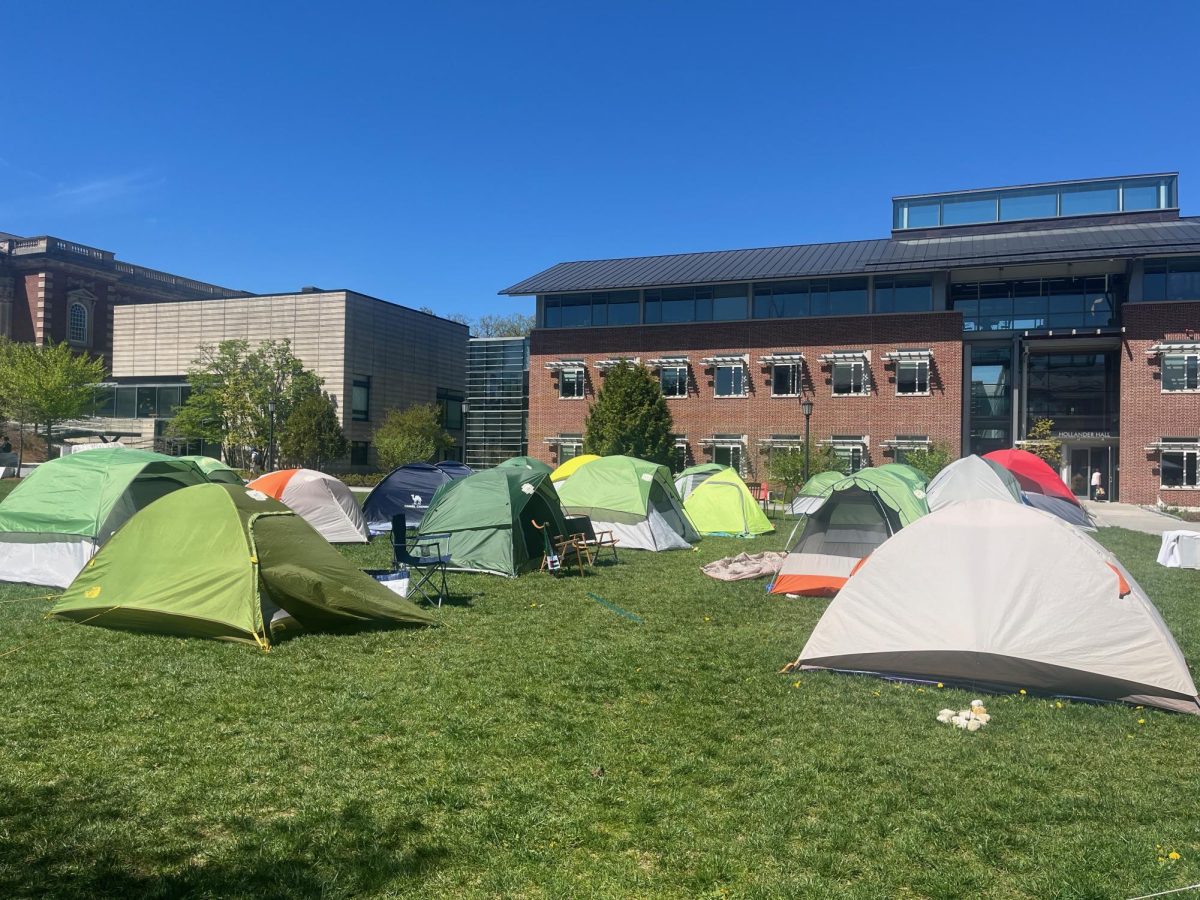Editorial: How professors can help support student mental health
November 10, 2021
Last year, amid the COVID-19 pandemic and much uncertainty, the College implemented policies — including Health Days and a more flexible Pass/Fail policy — to lessen the burden of academics on students, whose mental health and overall well-being seemed more precarious than ever before. While these policies were imperfect, they demonstrated the College’s commitment to helping students stay afloat in a moment of global crisis.
As we enter a “new normal,” it is crucial to emphasize that students’ well-being is still of the utmost importance — and that many continue to struggle with their mental health. As we reported in the news section this week, almost 550 students have already made use of Integrative Wellbeing Services (IWS) this fall, a higher number than in previous years. Students reported feeling worn down themselves and worried about the well-being of their friends.
The events of the last year and a half continue to take a toll on students, staff, and faculty alike. It is also important to acknowledge the painful losses our community has suffered in the past year, in particular the deaths of three members of the Class of 2024, for whom we as a community are still grieving. While vaccination has made a more conventional semester possible this fall, many of the factors that made last year especially taxing on students’ mental health have not disappeared, and now, students are expected to instantly readjust to a pre-pandemic workload.
The institutional response to crises in student mental health has long been to direct students to Integrative Wellbeing Services (IWS), and for good reason. Counseling sessions, support groups, and a variety of teletherapy options through Talkspace can be effective tools for supporting mental health during the academic year. But IWS is no longer able to take on new patients, and over 50 students find themselves on long waitlists for counseling and psychiatric services.
Even for students who are able to receive regular care through IWS, therapy — though helpful and important — is not a panacea for mental health concerns. We, as an editorial board, believe that there must be changes across the College if we want to see real and consistent improvement in mental health. As the College acknowledged last year, academic stress and pressure play an outsized role in students’ well-being. For this reason, we ask faculty members to consider how they can better support students’ mental health.
The College prides itself on providing students a rigorous and exemplary liberal arts education. That is part of why all of us — students and faculty alike — choose to come here. But a narrow emphasis on so-called rigor often has adverse effects on students’ mental health and, subsequently, academic experience. Especially right now, unmanageable workloads mean that our academic experience becomes less about learning and more about meeting deadlines. To be clear, we are not calling for a blanket reduction in workload, but instead for general flexibility in academic expectations.
There is no one-size-fits-all solution because every class, professor, and student is different. We know that professors care deeply about the mental well-being of their students. At this moment, we need this care to take the form of greater flexibility and a renewed desire to listen to and meet students’ needs. Some possible solutions include giving reasonable extensions without requiring explanations, having opportunities for student feedback throughout the semester, and generally prioritizing learning quality over assignment quantity. We urge professors to think of this as an opportunity to help students thrive across every facet of their lives. We also urge professors not to think of student well-being as incompatible with academic standards, because happier and healthier students tend to learn better.
It is important to acknowledge that many professors do many of these things already, and that many more want to but are not sure how best to do so. We are conscious and appreciative of the extra work that rearranging syllabi, granting exemptions, and navigating difficult conversations with students place on faculty’s shoulders. Because of this, the College’s administration must step up and give professors the time, support, and resources they need to fully integrate mental health support into their pedagogy.
As members of the campus community, we all have a part to play in supporting each other through difficult times: whether that be as classmates, colleagues, educators, friends, or teammates. We know that there are no perfect or universal solutions here, but there are many good ones. We ask that faculty members work alongside us students, as they so often do, to make concrete changes that will benefit not only students but also the community at large.
This editorial represents the opinion of the majority of the Record editorial board.








